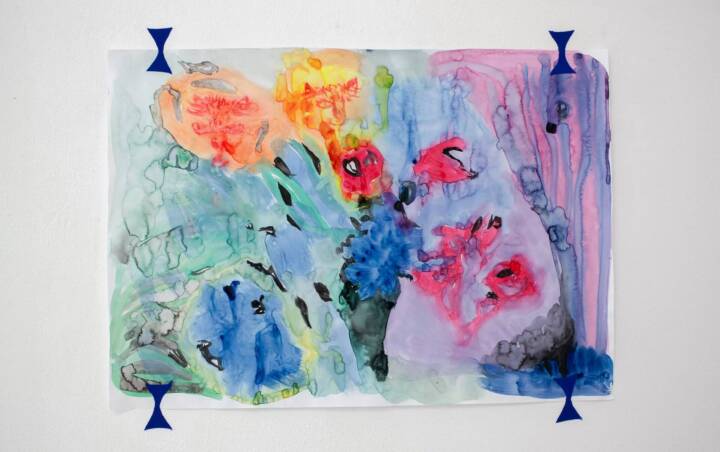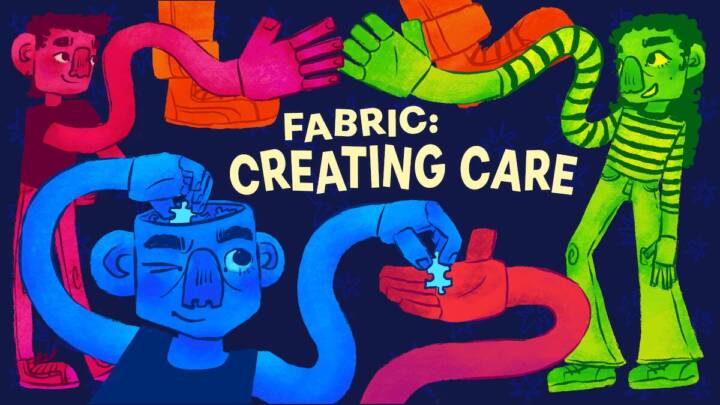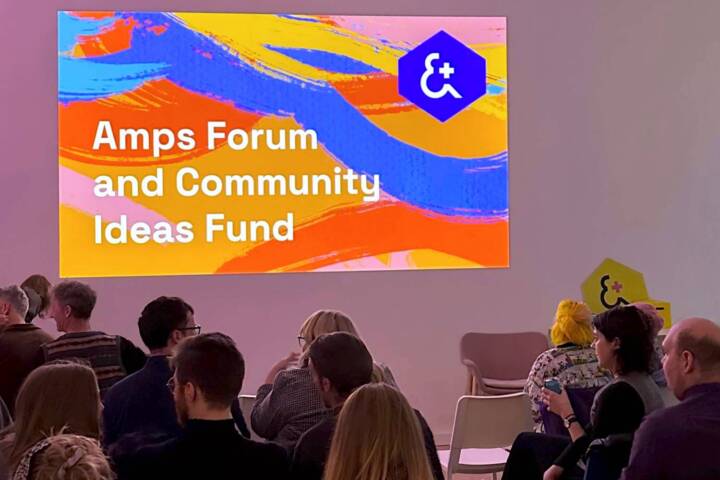Our blog series regularly invites guests to share their thoughts on different aspects of life in Dundee, their own practice, and anything in between!
In this edition, writer and poet Gavin Cameron tell us about the ins and outs of hosting and organising two creative writing groups. How to Run Two Dissimilar Writing Groups gives some good practical advice that spans across the hyper-local open mic night Hotchpotch and the global National Novel Writing Month.
If you know my name, it’s probably from one of the two writing groups I lead in Dundee. As I have a full-time office job, they’re both run on a voluntary basis in my spare time. While I didn’t set up either one, I’ve been the custodian of both for around the last six years.
Firstly, Hotchpotch is a monthly open-mike night where experienced or beginner readers can perform their prose and poetry to an audience with no judgement and no criticism. At present, we meet at the Hunter S Thompson on Perth Road.
The second is National Novel Writing Month (aka NaNoWriMo or NaNo). This is an annual global challenge to write the first draft of a novel during November, either competitively or casually, although we also meet all year round. I’ve been a member since 2010 and I became a Municipal Liaison (ML) in 2015. As ML, I run the Dundee and Angus region, acting as a link between our local members and NaNo Headquarters (HQ) in California.
The two groups are so different in nature that there’s only a small overlap in their memberships. Hotchpotch may be described as grassroots: we can choose when to meet, what format we follow and how we speak to members, and so forth. This attracts mainly poets and short story writers from a wide range of ages. While the evening often features LGBTQ and/or politically left-leaning voices, this by no means describes all our members. At each event, attendees are reminded not to give anyone else a hard time.
By contrast, the top-down structure of NaNo means we must follow directions about holding events, communication and organisational values. Notably, HQ currently prohibits us from holding events in person despite the easing of Scottish restrictions. However, HQ can give us excellent promotional material such as stickers and pep talks. Unsurprisingly, the membership is characterised by those who write longer-form pieces. Many are students, but people of all ages and backgrounds can and do come along.
Despite these disparities, there are a few commonalities. Here are three lessons I’ve learnt over the last six years that I would like to pass on.
1. Provide early, clear and regular communications.
Between Hotchpotch and NaNo, we send out regular bulletins to members via Facebook, Twitter and Discord, and many members still rely on e-mail.
In both cases, the bulletins are sent well ahead of time, with a clear indication of what to expect at a meeting, and a signature line stating how to unsubscribe. For in-person events, it’s stated what time the doors open and when the event will actually begin. This saves a lot of confusion and disruption on the night.
2. Never rant or moan at your wider membership.
I used to belong to a choir where the conductor would bring up her frustrations during rehearsals. It created such a negative atmosphere that members were afraid to speak up, so nothing ever changed.
If something goes wrong, then tell your members in a factual way what’s happened and explain what you’re doing to resolve the problem. And if you feel the need to vent at all, see point 3.
3. Bring someone with you.
It is possible to start a group alone, but it’s easier with two or more.
NaNo has backup from HQ, but I always appoint one local co-ML. That person has administrative privileges on our forums and can lead meetings if I’m ever absent.
As Hotchpotch is self-managed, we have a more robust solution. Over the years, we’ve built a ‘cabinet office’, comprising regular members who want the best for the group. We can chat in confidence about matters that arise, and vent privately if necessary.
On one occasion, after a venue closed unexpectedly, they put forward a better suggestion than the one I’d wanted to implement.
—
So why go through all this voluntarily? I can think of a few answers, but one driving force is the enjoyment of seeing writers challenge and improve themselves.
Through Hotchpotch, I’ve seen joyful moments where a member sits in the audience for months, then stands up on stage for the first time ever. Then every November, I hear from NaNo members with no idea what they’re going to write on day one, before clocking up 15,000 words in a week.
On a personal level, I feel that by running these groups for so long, my organisational and presenting skills have improved enormously. One of my longer-term ambitions is to use what I’ve learned to help people overcome stage fright.
Meanwhile, I aim to continue as custodian of NaNo and Hotchpotch for as long as I’m able.
To get involved in Hotchpotch join the Facebook page, follow on Twitter, or send SUBSCRIBE to hotchpotch.dundee@gmail.com to join the mailing list.

Thank you for visiting
If you would like to support us in creating even better content, please consider joining or supporting our Amps Community.



